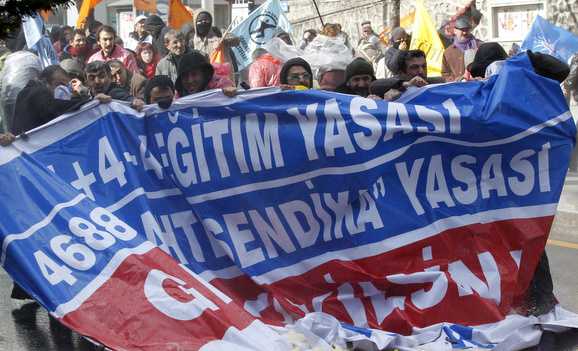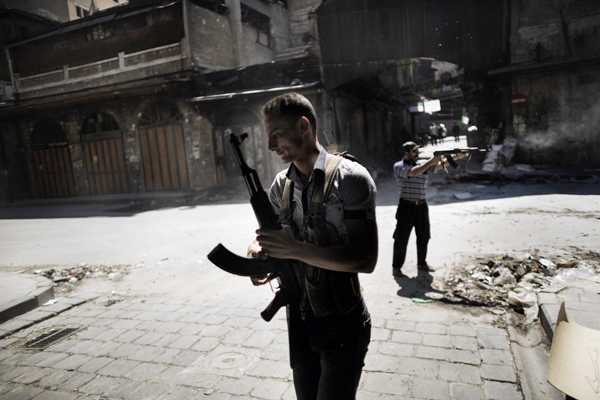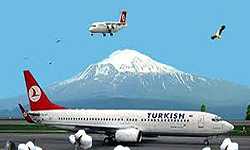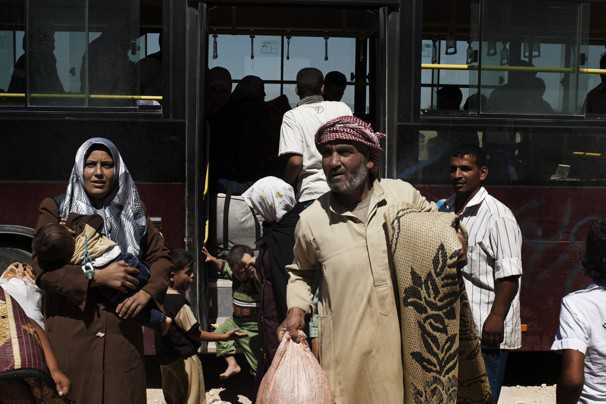
Is Turkey’s position today on the Syrian situation — and what has resulted from the revolution against the Baathist regime — the same as that of Pakistan toward Afghanistan, a position that has remained the same since the latter fell under Soviet occupation?
About this Article
|
Summary: Turkey’s stance on the Syrian crisis, having called for Bashar al-Assad’s removal, has sparked a polarization on religious and racial grounds that threatens Turkey’s modernity and secularism, writes Jihad al-Zein. For all the fear of a rising Islamist movement, the real headache facing Ankara is how to deal with Turkey’s Kurds and Alawites.
Publisher: An-Nahar (Lebanon) Categories : Turkey
|
What potential repercussions could such a position have on Turkey? This article will attempt to answer this question in two parts, today and on Thursday [September 20].
By virtue of its modernization achievements, Turkey is a country with a vast bourgeois elite as well as a large middle class. The latter carries the traditions of internal cohesion which stem from two sources: the state — meaning the Turkish nation — and the Western notion of the state.
However, these two segments of society, which are characterized by both capitalism and globalization, do not trust that lower segments of society — which make up the majority of society — are able to preserve cohesion.
Today, warnings abound against the increasing risk of internal disintegration. These warnings are not only being voiced by media commentators and opposition politicians — despite the significance of these voices — but by economic figures as well.
With unprecedented levels of openness, they are touching on topics such as the competency of the Turkish army in confronting the Turkish insurgency, and making calls for reconsidering its combat and training composition.
In a recent speech, Umit Boyner, president of the Turkish Industrialists and Businessmen Association (TUSIAD), expressed her concern regarding the return of “authoritarianism” to political life in Turkey.
On Friday [September 14], she said that the sharp polarization, hatred and hostility could destroy all of Turkey’s achievements in social, political and economic areas. This kind of warning implies that this body, which is seen as the strongest representative of prominent businessmen, is beginning to feel the threat of the current political stage on higher economic interests, and it is even threatening the structure of the entire country.
Among the topics that are creating mounting tension and surprising those who follow Turkish affairs, myself included, is the issue of Turkish Alawites. During the recent period — especially since the outbreak of the Syrian revolution and the start of clashes between rebel forces and the authorities — Turkish Alawites have developed their own positions and made movements, specifically those in the Province of Hatay.
In this province, Turkish Alawites have held demonstrations and have often clashed with Syrian refugees. A large Turkish (and Kurdish) Alawite minority lives in other areas in Anatolia, extending to Istanbul. This minority is estimated to constitute 12-15% of the 75 million Turkish citizens, according to some non-Alawites, and 20-25%, according to some Alawite institutions that now speak on behalf of that population.
As I have said repeatedly, the exact number of Alawites inside Turkey lies somewhere between these conflicting figures, as is the case with the percentage of Copts in Egypt or the Shiites in Pakistan.
However, the point worth raising is related to the prevalent idea often circulated verbally or in writing by Arab or Western observers of Turkish affairs, which is that the Arab Alawites in the areas of Iskenderun, Antakya and Ersuz differ religiously from the Turkish Alawites — the idea that they are not one “confession.”
This widespread stereotype, I humbly claim based on my personal observations and readings, is incorrect. There may be some differences in their rituals as a result of nationalist Turkish-Arab-Kurdish (and Albanian) differences, but the content of the teachings is one.
This is evidenced by the accounts of many Turkish and Western sociologists, who have publications in the Turkish language or translated into English in Turkish libraries. Some of these sociologists have attended religious gatherings, described them and reported on some of the sect’s religious texts.
Here, two things are to be taken into account:
First, when the modern Turkish state was born in 1923, millions of Anatolian peasants — including Alawites — moved to the big cities, especially Istanbul, Izmir and Ankara. This resulted in a new phenomenon among the Alawites.
They publicly opened centers of worship in the big cities, calling these centers dirjas. There, they conducted their prayers, or at least the portion of which they chose to make public — what they called their “interpretation of Islam.” The relative Alawite openness about their religion was the result of Turkish democratic, social and economic modernity.
I visited the Asian portion of Istanbul along with Folia Atasan, a Sunni Turkish friend and a sociology professor and researcher specializing in religious social studies. I saw what goes on in the dirjas there. I saw the Alawites practice their “very private ”religious rituals not in secret, but in public.
Second, the Ottoman-era historic divisions of the Alawites in Turkey came from two sources: the popular base and the elite. The popular base are the historically isolated mountain peasants, which are the majority. The elite are of Sunni-Sufi-Bektashi origin, to which the Sunni Janissaries belonged. After the Janissaries in Istanbul were dissolved in 1826, they became a secretive Alawite sect found in the cities, especially the Balkan cities.
Two things resulted from the Turkish experience. First of all, the Alawites became more socially integrated, whereby Alawite rituals became more public. Secondly, a unified Turkish trans-ethnic identity appeared. The Alawites spread out throughout Turkey.
Even though they have always requested religious recognition, they have never had political demands. In the current political atmosphere, we should monitor the rise of the fundamentalist Sunni currents in the region and see whether they will have positive or negative effects in light of the Turkish involvement in the Arab transformation.
The Islamist rise is a long-term danger to the Turkish modernist experience. It is not an imminent danger, despite the warnings of Turkish commentators. The bigger danger to Turkey’s cohesion and territorial integrity is the worsening Kurdish issue and the military confrontations happening in many areas.
A commentator for Azzaman newspaper, Ihsan Dagi, said that the Justice and Development Party (AKP) now considers the Kurds to be “the new other” after it triumphed over “the first other,” i.e. the military guardianship over the state and society.
He also said that the Kurds will be a major issue for Turkey for a long time to come. With the escalation of the armed Kurdish operations, Prime Minister Recep Tayyip Erdogan and the AKP have adopted an ultra-nationalist classical “Ataturkian” discourse with regard to the Kurdish issue. Some Turkish intellectuals even spoke of “a change in the party’s identity.”




